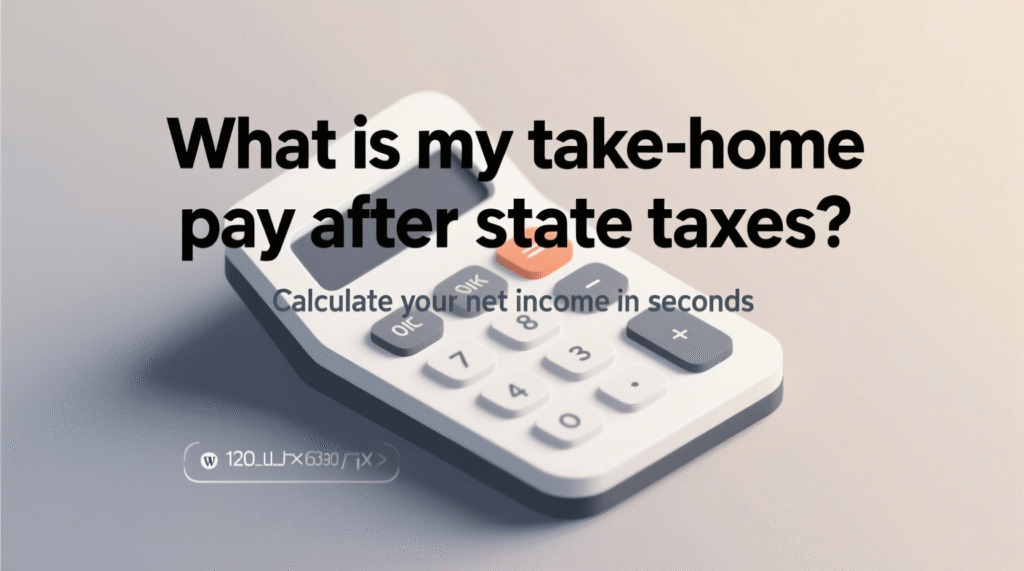
When you look at your paycheck, the number you care about most is the take-home pay—what actually lands in your bank account after all the deductions. Understanding how state taxes fit into that picture can help you plan your budget, compare job offers, or even decide whether moving to another state makes sense
What Counts as Take-Home Pay?
Your take-home pay is your net income, calculated after subtracting these items from your gross pay:
- Federal income tax (bracketed system based on your income and filing status)
- State income tax (flat or progressive, depending on your state)
- FICA taxes (Social Security 6.2% + Medicare 1.45%)
- Local taxes (in cities like New York City or Philadelphia)
- Other deductions (401k contributions, health insurance, HSAs, etc.)
Quick Formula
Take-Home Pay = Gross Pay − (Federal Tax + State Tax + FICA + Local Taxes + Other Deductions)
How State Taxes Change Your Pay
Not every state takes the same bite out of your paycheck:
- No income tax states: Texas, Florida, Washington, and a few others. You’ll keep more of your earnings, though some charge franchise or business taxes.
- Flat tax states: Arizona (2.5%), Colorado (4.4%), where everyone pays the same percentage of taxable income.
- Progressive states: California, New York, New Jersey, where tax rates increase as your income rises.
Example Paycheck Scenarios
Let’s say you earn $5,000 per month (gross), single filer with no extra deductions:
- Texas (no state income tax)
- Federal income tax: ~$500
- FICA: $382.50
- State tax: $0
- Take-home: ~$4,117.50
- Arizona (flat tax, 2.5%)
- Federal income tax: ~$500
- FICA: $382.50
- State tax: $125
- Take-home: ~$3,992.50
- California (progressive, ~6% effective at this income)
- Federal income tax: ~$500
- FICA: $382.50
- State tax: $300
- Take-home: ~$3,817.50
This shows how two people earning the same salary can end up with different paychecks depending on state tax policy.
Why Pre-Tax Deductions Matter
If you contribute to a 401k, health plan, or HSA, those amounts are subtracted before taxes are applied. This lowers your taxable income and increases your take-home pay.
FAQs About Take-Home Pay After State Taxes
1. What is take-home pay after state taxes?
It’s the money left after federal, state, local, and payroll taxes plus any deductions are withheld.
2. Do all states take income tax out of my paycheck?
No. Nine states have no personal income tax, which usually means higher take-home pay.
3. How do I calculate my state tax rate?
Check your state’s tax brackets or flat rate. Multiply your taxable income by that rate.
4. What if I work in one state and live in another?
Reciprocal agreements may prevent double taxation, but you usually pay where you work.
5. Can pre-tax benefits really lower my state tax?
Yes. Contributions to retirement accounts or health plans reduce taxable income in most states.
Robert is the creator of StateTaxesEstimator.com, a trusted resource dedicated to helping users accurately estimate their state taxes. With a strong focus on clarity and precision, Robert combines expert knowledge with practical tools to simplify complex tax calculations. His mission is to empower individuals and businesses to make informed financial decisions with confidence and ease.
